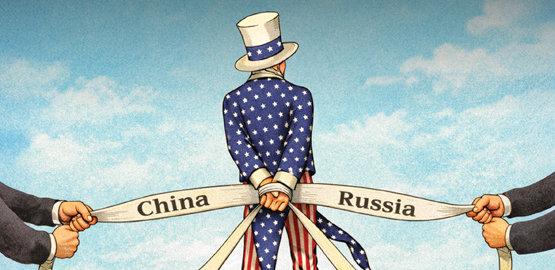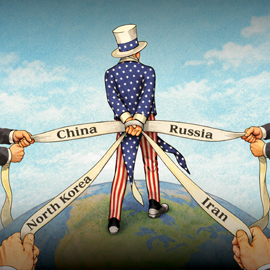News
Statistics in pursuit of social justice
Data skills are in demand. E-commerce, advertising and artificial intelligence companies are willing to pay substantial sums for statistical knowhow. But statisticians can do more than make their mark in business. They can have real impact on people’s lives.
Trump’s Quick Fix Approach to Iran Nuclear Deal Creates Untenable Policy Dilemma
President Trump’s latest quick-fix approach to the Joint Comprehensive Plan of Action (JCPOA) on Iran’s nuclear program creates an untenable policy dilemma. Because the deal sacrificed significant U.S. leverage upfront, right now there is currently little Congress can accomplish singlehandedly in trying to strengthen it, and much the administration would place at risk in abruptly leaving it.
The Chinese Century?
No one can say we didn’t see it coming. Since the end of the Cold War, and even before, it has been obvious that a rapidly rising China could eventually menace America’s position and influence in East Asia—and, perhaps, globally as well.
Turkey Is Out of Control. Time for the U.S. to Say So.
There’s a real danger of a clash between U.S. and Turkish forces. The administration should make clear that it won’t tolerate any more bad behavior—now.
China Hasn’t Won the Pacific (Unless You Think It Has)
Is China destined to dominate the Asia-Pacific? Among U.S. allies and partners in the region, there seems to be a growing doubt that America can win the ongoing competition for influence with China, and that they must begin preparing for a regional order headed by Beijing. The challenge for America, then, is to ensure that this feeling of strategic fatalism doesn’t become a self-fulfilling prophecy.
Reviewing the Navy’s Strategic Readiness Review: What’s Right, What’s Missing
The Navy’s new Strategic Readiness Review lays out a bold program to fix the fleet after a summer of deadly collisions. Commissioned and championed by Navy Secretary Richard Spencer, the SSR (as it’s already initialized) will shape the debate in the Pentagon and in Congress for 2018. So we asked submariner-turned-thinktanker Bryan Clark to review the review. Clark, now with the Center for Strategic & Budgetary Assessments, found much to praise, but he had some misgivings. While the review does an excellent job explaining the stress on the Navy and proposing a new “learning organization” to prevent future fatal mishaps, he told us, it assumes away some serious strategic problems and is short on hard data. Clark’s five-point analysis follows. Read on! The Editor.

























